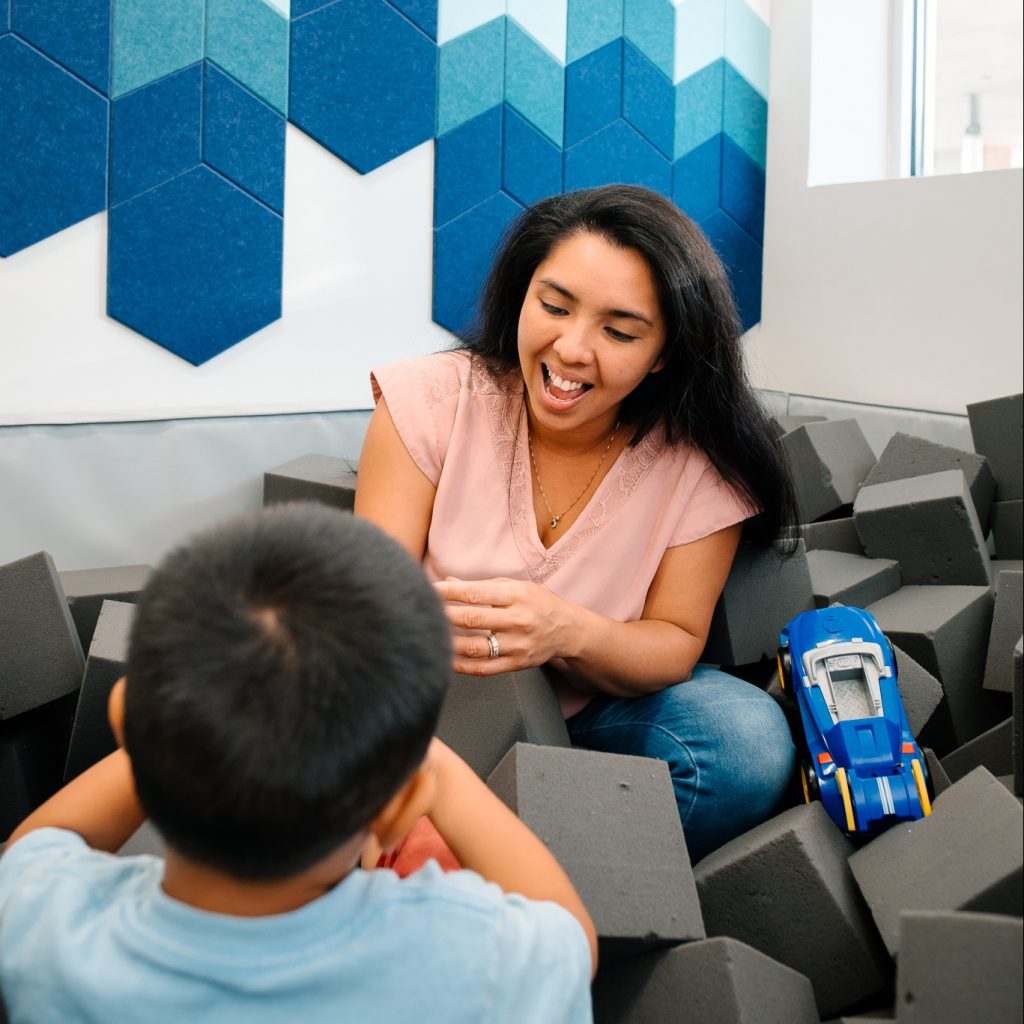The Floortime Difference
Understanding DIR (Developmental, Individual-Difference, Relationship-Based) Therapy: Also known as Floortime, this therapeutic approach is specifically designed to support autistic individuals and others with developmental disabilities in developing their social and communication skills.
DIR therapy is based on the understanding that all individuals have an innate desire to connect. By engaging in meaningful interactions and focusing on their strengths and interests, DIR therapy enhances their ability to relate and communicate.
At Uniquely You Behavioral Health, DIR therapy is delivered by therapists who hold at least a bachelor’s degree and have completed Level 1 training, ensuring they are certified to practice.
Parent coaching is expertly handled by Master Level Clinical Social Workers who hold an Advanced Practice Certificate in DIR, providing skilled and sensitive support to families.
ABA (Applied Behavior Analysis) therapy is a type of therapy that focuses on increasing desirable behaviors and decreasing undesirable behaviors in individuals with autism or other developmental disabilities.
It is based on the principles of behaviorism, which suggests that behavior can be modified through reinforcement and punishment. ABA therapy is typically provided by ‘Registered Behavior Therapists’ (RBTs). To become an RBT a person needs only a high-school diploma and 40 hours of training.
One key difference between ABA therapy and DIR therapy is the focus of the interventions. ABA therapy focuses on specific behaviors and uses reinforcement and punishment to modify those behaviors. In contrast, DIR therapy focuses on the overall development of the individual and uses interactions and play to build skills.

Floortime: All the Time, Everywhere Autistic children often benefit from continuous and intensive interaction to help overcome disabling aspects of their condition, such as limited spontaneous social initiation.
Floortime promotes the philosophy of “all the time, everywhere”—integrating therapeutic interactions throughout daily activities. Whether in the home, at the supermarket, or during routine activities like meals and bath time, Floortime can be seamlessly woven into various environments.
This inclusive approach allows for engagement with siblings, peers, and adults in numerous settings, supporting constant learning and development in natural contexts. With effective Floortime coaching, caregivers are empowered to facilitate these interactions, ensuring both the child and the caregiver find joy and value in their shared experiences.


